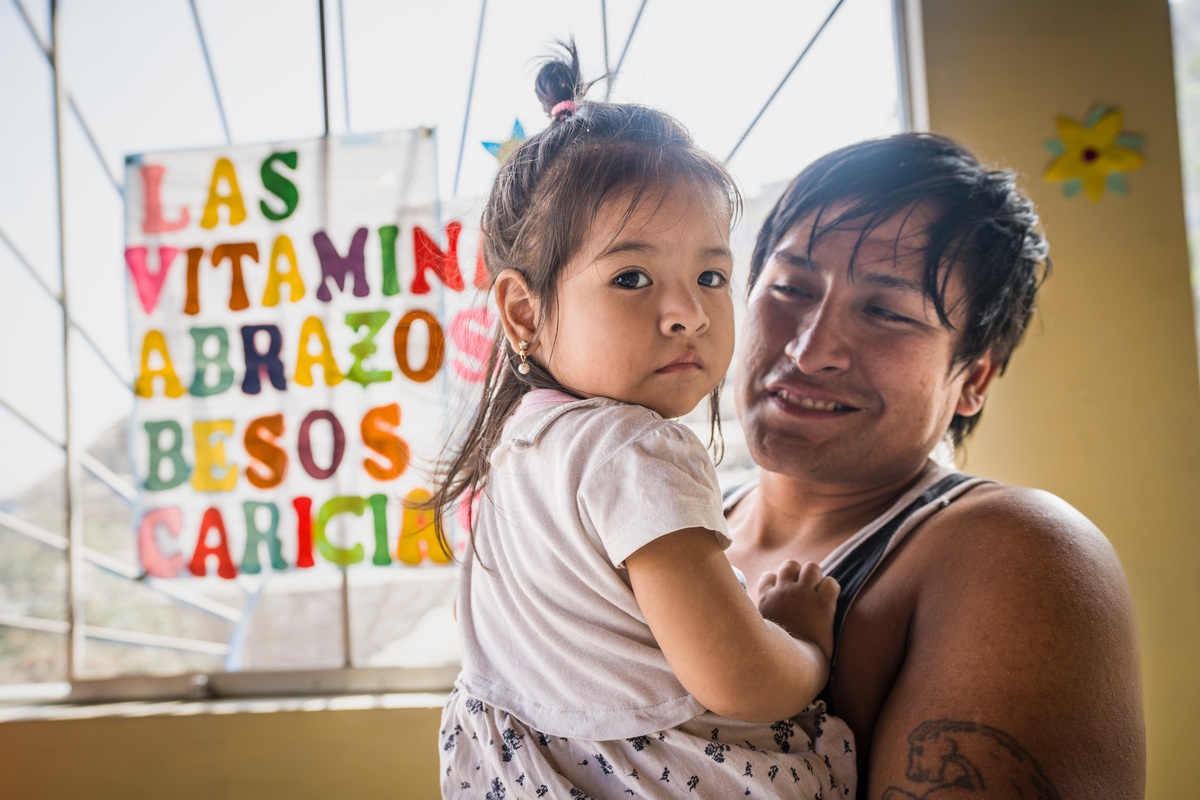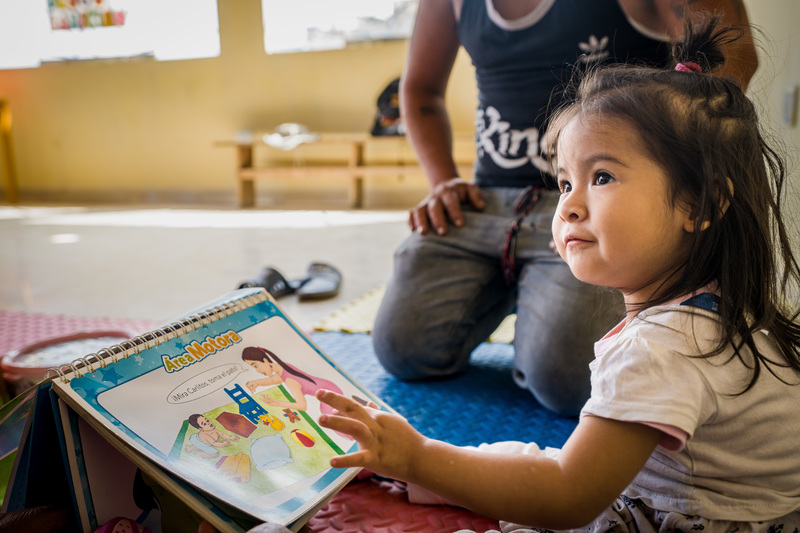Fathers as Caregivers: Promoting Gender Equity in Parenting in Peru
CASITA program supports at-risk children, caregivers
Posted on Aug 30, 2023

Henry Domingo Vilca used to be “cold and distant,” not expressing his feelings or connecting with his children emotionally. Now, the sight of his daughter running toward him, shouting “Papa!,” often brings him to tears.
“She is my everything,” he says. “She is my world.”
He didn’t experience moments like that growing up.
“My father was quite firm and had a traditional upbringing,” Vilca says. “He didn’t hug me or tell me how he felt. He even hit me.”
In Peru, machismo still runs deep. This set of ideals and beliefs associates masculinity with traits like dominance and aggression and has fueled decades of violence against women and girls, including femicide, and promoted traditional gender roles. At the same time, machismo has also pressured men to suppress their emotions, masking their struggles with mental health and discouraging them from seeking help.
When Vilca’s son was born, he followed traditional gender roles, acting as the breadwinner while his wife managed the home and caregiving responsibilities. He also didn’t show affection or take much interest in his son’s feelings.
But when his daughter Cayetana was born, all that began to change.
For one, the girl had a hemangioma, a vascular tumor that is usually benign, on her back. Fortunately, the condition went away on its own. But it worried Vilca. He made sure to take her to the local clinic in Carabayllo for her 12-month check-up.
At the clinic, staff evaluated her psychomotor development and found that she was showing signs of risk for developmental delays in her social, language, and motor skills, prompting them to connect Vilca and his family with Socios En Salud, as Partners In Health is known in Peru.
Fathers As Caregivers
Socios En Salud has worked in Peru since 1994, when it responded to a deadly outbreak of multidrug-resistant tuberculosis in Carabayllo. In the years since, Socios En Salud has expanded its work to provide medical care and social support for thousands of people nationwide.
One of those programs is CASITA, a three-month intervention for caregivers and children ranging from 6 months to 2 years old. Based in Carabayllo, the program identifies children at risk of developmental delays and enrolls them and their caregivers in free sessions to learn social-emotional, motor, language, and cognitive skills through play. Since 2013, CASITA has enrolled more than 3,648 children and screened more than 6,795, with 85% showing improvement during its pilot period.
Early detection of developmental delays is critical in helping children access the care and support they need to become healthy, independent adults. This is especially true in Carabayllo, where daily challenges include poverty, malnutrition, and domestic violence and where only 34% of children under 3 are up-to-date on their growth and development checks.
Vilca began CASITA in February, attending weekly classes with Cayetana and 10 other caregivers and their children. The sessions were taught by a community health worker, one of nearly 100 local residents hired and trained by Socios En Salud to provide basic health care at the community level.

Over the next three months, Vilca and other caregivers sang songs, read books, and built pyramids of toys with their children. With each session, Cayetana began to show signs of growth, including taking her first steps, improving her foot-eye coordination, and memorizing and pronouncing words. And she wasn’t the only one learning new skills.
“Socios En Salud was there at a key moment for our family,” says Vilca. “It has really helped my daughter and me as her father.”
Learning To Play
Vilca was the only father in the group—a fact that, at first, made him self-conscious.
In traditional Peruvian households, the mother is responsible for caregiving, raising the children, and taking care of the house, while the father is the breadwinner, bringing in income. Throughout history, caregiving has been a role assigned to women, attributed to “maternal instinct” instead of viewed as a learned behavior. This stereotype has harmed women, creating a widely-documented gender gap in caregiving, has led to the devaluation of caring professions such as nursing, and has also reinforced the myth that men are less capable of caregiving.
In reality, caring has no gender.
As the weeks went by, Vilca grew his own confidence as a caregiver. He learned how to show affection and respond to Cayetana’s emotional needs.
Those changes went beyond the classroom.
“I see that she’s happy when she’s with me and that makes me feel like the best dad,” he says. “Now I suddenly have the desire to spend time with her, as well as with my son. I really enjoy going out to play and have time with them outside of [CASITA] sessions.”
He used to barely acknowledge his children when he came home from work each night, exhausted and depleted. But since CASITA, his evening routine has changed.
“I love holding my children when I arrive [at my house] and hugging them,” he says. “I won’t deny that it was strange at first.”
He and Cayetana have now completed the CASITA program. But he keeps in touch with Socios En Salud staff and the other caregivers.
“I am grateful to Socios En Salud for our lives,” he says. “Some may think that SES only helped my daughter, but they also cared about our family and counseled me on my relationship with my partner. It has strengthened everyone’s bond and left us with great lessons on how to face challenges in the future.”
The greatest lesson, for Vilca, is feeling more connected with his children.
“They have completely changed me,” he says. “My greatest wish is to see [them] achieve their dreams...I want them to know that I will always be there to listen, guide, and support [them].”

